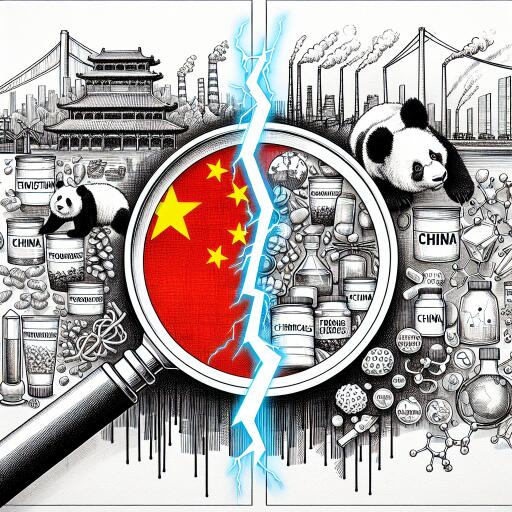China’s Anti-Dumping Probe into Imported Chemical Escalates Trade Tensions
In a move that has heightened trade tensions with some of the world’s major economies, China has recently initiated an anti-dumping investigation into polyformaldehyde copolymer imports from the European Union, United States, Japan, and Taiwan. This development comes against a backdrop of already strained relations between China and these trading partners over various economic and diplomatic issues.
Polyformaldehyde copolymer, commonly known as POM copolymer, is a crucial engineering plastic widely used across multiple industries including automotive, electronics, industrial machinery, sports and medical equipment, and construction. Its versatility and ability to replace metals such as copper, zinc, tin, and lead in many applications make it a significant material in global trade.
The Chinese Ministry of Commerce has announced that the investigation was instigated following a joint complaint filed by six Chinese producers in April. Expected to last a year, with a potential six-month extension under extraordinary circumstances, this probe aims to examine the impact of imported POM copolymer on the domestic market and address the concerns of local manufacturers regarding unfair competition.
This action by China is mirrored by similar measures from the European Union and the United States. The EU has recently begun investigating imports of tin-plated flat-rolled iron or steel products from China, while the United States has imposed new tariffs on a range of Chinese products. These include electric vehicles, advanced batteries, solar cells, steel, aluminum, and medical equipment, citing unfair government subsidies that give Chinese products a competitive advantage internationally. According to the White House, these measures are a direct response to China’s “unfair trade practices,” including issues related to technology transfer, intellectual property, and innovation which pose a threat to the economic interests of American businesses and workers.
The White House has further criticized China for its non-market practices and industrial overcapacity, which they claim not only distort global markets but also pose significant risks to America’s economic security and supply chains in critical sectors like technology, infrastructure, energy, and healthcare.
The ongoing disputes have prompted discussions at high levels, with US Treasury Secretary Janet L. Yellen meeting Chinese officials in Beijing and Guangzhou to express concerns over China’s trading practices and industrial policies. Both parties have agreed to continue discussions on these contentious issues, reflecting the complex nature of Sino-American economic relations.
With the US and the EU raising concerns over China’s “industrial overcapacity” and its impact on their domestic industries, these developments mark the latest chapter in the ongoing saga of trade tensions between China and its major trading partners. As the world’s economies become ever more interconnected, the resolution of such disputes becomes crucial to maintaining stability and prosperity in global markets.
